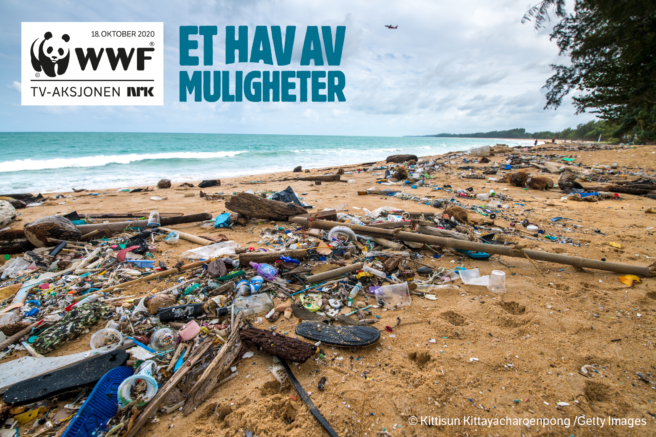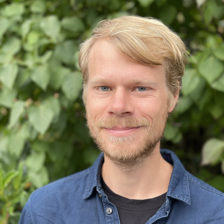Interested candidates should send their application including resumé and application letter including proposed methodology, suggested cost breakdown not exceeding NOK 600 000, links to previous similar work, and 2-3 references to tender@wwf.no, with Andreas Røise Myhrvold (amyhrvold@wwf.no) in cc, by December 4th, 2024.
Tender: Endline review for the programme “An Ocean of Possibilities”
WWF is seeking a consultancy firm/consultant to produce an endline review of the programme “An Ocean of Possibilities”, which aims to reduce plastic pollution into nature by 30 % in nine selected South-East Asian cities by 2025.

Background
The programme An Ocean of Possibilities runs from 2021-2025. The funding comes from the annual TV fundraiser “TV-Aksjonen” conducted by the Norwegian National Broadcasting Agency (NRK), totalling approximately NOK 240 million, where approximately NOK 200 million has been allocated to four WWF country offices in Indonesia, the Philippines, Thailand and Vietnam as well as an additional external partner operating in Thailand. NOK 50 million of the project funds were donated by the Norwegian government and was granted through the Norwegian Agency for Development Cooperation (Norad).
The programme is designed to contribute to the overall strategic plastic pollution work of WWF, which is divided into three pillars: advocate for policy to manage plastic pollution, build business engagement in reducing plastic pollution, and Plastic Smart Cities, where cities work to reduce their plastic pollution. An Ocean of Possibilities supports nine cities in Southeast Asia to become “Plastic Smart Cities”. Southeast Asia is the region where most plastic leaks into nature each year. Poor waste management in cities are a key source of plastic pollution in the ocean.
The cities covered by the programme are: Bogor, Depok and Jakarta in Indonesia; Manila City in the Philippines; Hat Yai, Koh Samui, Songkla and Surat Thani in Thailand; and Hue in Vietnam.
The overall aim for the programme, and for WWF’s pillar Plastic Smart Cities, is to reduce plastic leakage into nature by 30% by 2025 in the target cities. This is done by focussing on four key components: ensuring political buy-in from the municipalities, reducing the use of plastic products, improving collection rates of waste, as well as improving recycling. End-of-life treatment issues such as landfill management play a minor role in the programme. Documenting good practices and learning, and identifying opportunities for scaling and replication, is also considered an important goal for the programme, as well as the Plastic Smart Cities pillar.
The programme has been split in two parts: an inception phase (2021-2022) and an implementation phase (2022-2025). The prior was used to conduct baseline studies, secure political support, build plastic and solid waste management knowledge in the WWF project teams and develop clear result frameworks, action plans and budgets. The implementation phase was initially intended to conclude by the end of 2024, but has been extended until the end of 2025 for the projects in Vietnam and Indonesia, and until March/April 2025 for Thailand and the Philippines. A mid-term review (MTR) of the programme was conducted in 2023.
PURPOSE AND OBJECTIVE
WWF will conduct an endline review of the implementation of An Ocean of Possibilities to ensure deeper learning and analysis of the Programme’s implementation and achievements. The key users of the evaluation will be WWF offices and the global No Plastic in Nature team in WWF. The report will also be shared with Norad and NRK. The main objective of the evaluation is to provide WWF with an independent assessment of to what extent the objectives of the programme as defined by the overall programmatic results framework have been achieved, as well as contributions towards the impact goal of 30% plastic leakage reduction. The review should also gather lessons learned from programme implementation, and provide a renewed assessment of programme design, following the MTR and efforts to implement recommendations from this.
The review will be used to inform the broader strategic plastic work of WWF on Plastic Smart Cities and input to WWF-Norway’s strategic thinking on future plastic-focused fundraising and programming. Lessons learned may also benefit Norad’s continued efforts to combat marine plastic litter as well as other Norwegian funding streams towards circular economy solutions or investments into specific components of plastic value chains.
The specific objectives of the endline review also include:
- assess whether funds have been used effectively and efficiently to deliver outputs and results;
- triangulate and assess data on outcomes, and impact achievements towards the 30% reduction target, across the programme portfolio;
- draw key lessons learned and good practices from project implementation, including thorough analysis of relevant Plastic Smart Cities learning case studies;
- assess the added value of WWF-Norway’s management of the programme, including the relevance and adequacy of various technical support provided to the country offices;
- assess whether findings are generalizable, and whether successful approaches are scalable or replicable, to other contexts;
- recommend strategies to improve performance for similar programmes in the future, including on aspects related to stakeholder inclusion and ownership, and sustainability of interventions.
Download:
Full terms of reference
Read the full terms of reference here:
Interested candidates should send their application including resumé and application letter including proposed methodology, suggested cost breakdown not exceeding NOK 600 000, links to previous similar work, and 2-3 references to tender@wwf.no, with Andreas Røise Myhrvold (amyhrvold@wwf.no) in cc, by December 4th, 2024.
For questions, please contact

Andreas Røise Myhrvold
Seniorrådgiver, Plastic Smart Cities